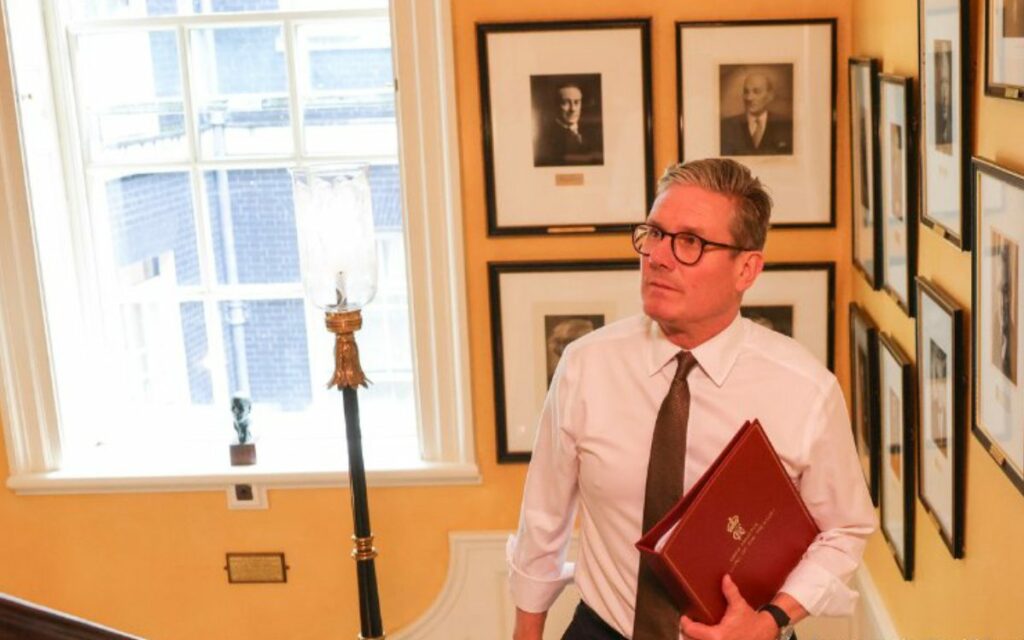
We do not need to spend excessive time questioning whether the British people have rejected populism. They have not and they will not in the foreseeable future. Pictured: British Prime Minister Sir Keir Starmer. Photo Credit: Keir Starmer/X.
Earlier this month, Britain’s Labour Party made a triumphant return to power. This election was significant for a number of reasons. First of all, a Conservative Prime Minister has occupied Downing Street since 2010. In fact, the last time that Labour won an election, there were some World War I veterans who would have had the opportunity to cast their ballots. Secondly, the party won 411 of 531 (more than 75 per cent) of the total seats in the British House of Commons. Thirdly, the vote is being heralded by many political analysts and commentators as a rebuke of the recent wave of working-class populism that has been prominent throughout Europe and the Americas. While the first two points are indisputable facts, the third assertion is open to scrutiny. A careful consideration of what defines ‘populism,’ coupled with an examination of the partisan context in which the British nation currently finds itself, may offer some surprising results.
A populist, as defined by the Webster’s Dictionary, is “a believer in the rights, wisdom or virtues of the common people.” In the simplest of terms, therefore, populism seeks to advance the values of everyday people. In pursuing this overarching objective, it is a commonly accepted principle in populist circles that there is an elite class that has interests which are in opposition to those of average citizens. Economic issues, such as taxes, trade and labour policy, as well as social issues, including immigration, law enforcement and political correctness, are among the largest battleground issues for those who espouse populism. Populists tend to be economically protectionist, favour lowering taxes on individuals and strengthening corporate accountability, all while minimising immigration and rejecting wokeness. Populists are also typically staunch nationalists who are cynical of interstate partnerships and are often strongly opposed to involvement in wars.
The Conservative Party in Britain has developed a reputation for being a populist party. With that being said, it is a hard case to make that the Conservative Prime Ministers of the past fourteen years have usually governed as populists. David Cameron (2010-2016) and Theresa May (2016-2019) were economically moderate and maintained a conventional foreign policy. It was not until Boris Johnson was sworn in by Queen Elizabeth II, on July 24th 2019, that the nation had a Prime Minister who supported Brexit. In the December elections of the same year, Johnson became the first of the threesome to be awarded with an outright majority. His support for Brexit, and a future in which Britain would regain sovereignty over its own affairs, no longer beholden to the decisions of the European Parliament, was the reason he was entrusted with such a mandate. In the years that followed, however, Johnson’s identity as a common man was dealt a fatal blow by actions that were interpreted as hypocritical during the pandemic, broken promises to decrease immigration and his fraternising with world elites. His successors, Liz Truss and even more so Rishi Sunak, rejected populism in favour of more traditional Conservative policies.
The Labour Party, on the other hand, and the new Prime Minister, Keir Starmer, are being viewed as belonging to a customary framework of centre-left British politics. This understanding, however, is also flawed and incomplete. Throughout the recent campaign, Starmer talked about fixing the economy and reforming public institutions. His platform included tangible objectives like lowering the voting age to 16, advancing the rights of workers, reducing immigration and renationalising the Great British Railways. Starmer has also celebrated the Labour party for championing the plight of common folk. With that being said, Starmer does strongly identify as a socialist, writing in the The Guardian of his “burning desire to tackle inequality and injustice.” How Starmerism is best understood will depend a great deal on the policies of the next few years. However, it is difficult to argue that the man is a neoliberal.
That brings us to Nigel Farage and the Reform Party (formerly Brexit Party). Although he once served as a longstanding Member of the European Parliament, Farage is a nationalist-populist who has effectively reached those seeking to upend the status quo. He argues that the Conservatives, Labour Party and Liberal Democrats offer little variance in approach to solving the big issues, and that the political system, in its current form, does not work for everyday people. Farage supports drastic tax cuts, dramatically lowering immigration and, unlike his Conservative and Labour colleagues, blames the West for the war in Ukraine. He has also endorsed former president Donald Trump for a second term as President of the United States. Remarkably, the most tangible impact of Farage’s return to the House of Commons is not that he and four other Reform Party Candidates were elected as Members of Parliament in the July 4th elections. It is, rather, that he took 14 per cent of the national vote, sending numerous Conservative MPs into retirement, and effectively helping the Labour Party to achieve one of the greatest electoral landslides in British history.
Upon contemplation, perhaps the only item worthy of celebration for traditional British Conservatives is that their party has not yet fallen prey to the same iteration of populism that has taken over the American GOP. With that being said, discussions are already underway regarding the prudence of a merger with Farage and his acolytes. While the move could be popular with many Conservative voters, Farage’s controversial views, especially on foreign policy, are entirely incompatible with the party of Winston Churchill. One way or another, once this matter has been put to rest, the Conservative movement will need to convince working-people that it is once again ready and able to represent their interests.
On a broader note, this election has revealed an imperative truth about populism. While populist sentiment has recently manifested itself in the right-wing politics of western nations, populism itself is not inherently partisan. On pages 102-103, in Chapter 7 of his 2018 book Right Here, Right Now, Politics and Leadership in the Age of Disruption, The Rt. Honourable Stephen Harper reflects: “I am convinced that, if we do not get this right, much worse awaits us. We will see the rise of populism not of the right but of the left. In fact, it is one virtually indistinguishable from old-fashioned communism or, as neo-communists prefer to call it, ‘socialism.’”
Thankfully, we are not there yet. Despite Mr. Starmer’s socialist leanings, the platform of the previous British Labour leader was more concerning in many respects. In addition, the new British government did not unequivocally receive its mandate from an organised populist voting bloc. Moreover, left-wing populism has not effectively gained a foothold in most other western democracies. With that being said, do not be mistaken…the deep end is in sight.
There are a lot of questions to be answered over the next few years: Will Starmer spend his years as Prime Minister struggling to execute his vision for a new British economy, post globalism? Could he be forced to lead a battered nation (and continent) into the next World War, sans American support? Might he, like many of his predecessors, become embroiled in caucus divisions and find himself under acute pressure to resign before the end of his term?
These are all queries that are worthy of our consideration. One question we do not need to spend excessive time on, however, is whether the British people have rejected populism. They have not and they will not in the foreseeable future.

Nick Redekop completed his Honours Bachelor of Arts Degree in Labour Studies at Brock University. He has previously served in municipal and federal politics. In his free time, Nick enjoys following sports, taking part in outdoor activities, and reading biographies. Nick resides in Niagara Falls




















